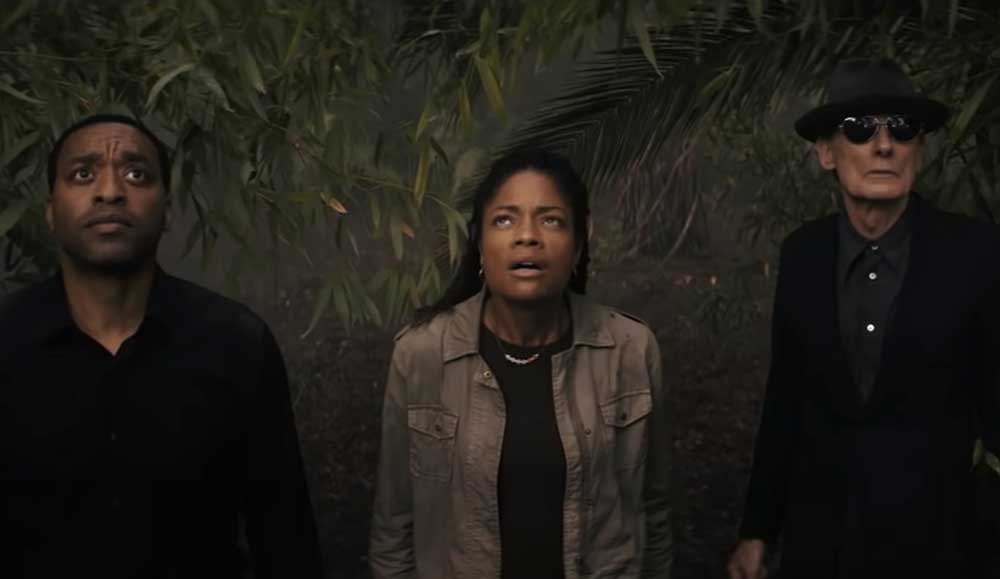There are echoes of Cosmos at the opening of Man Who Fell to Earth – one of those great classic novels from the literary Sci-Fi Golden Age of the 1960s that has already been adapted to both film and TV multiple times – most memorably with David Bowie in the titular role. The latest incarnation appears to be well aware of this fact, with each episode being named after a song by the legendary musician – and Bill Nighy taking the place of Bowie as the character Thomas Newton who liked the temperate forests of Earth so much he decided to stay.
In some ways, this new adaptation acts as a sequel, with Newton’s pupil, named after another iconic scientist, Faraday – played masterfully by Chiwetel Ejiofor, looking with wonder as he hurls through the far reaches of the universe – idyllic visions of the Milky Way Galaxy before finally crashing towards Earth in a meteorite and then evolving into the shape of a modern human from a puddle of what looks like primordial ooze, all reflected over in Ejiofor’s meditative voice as he addresses the people of Earth.

While the 1976 film took a stylized approach to the conventions of the sci-fi film, capitalizing on the surreal elements and familiar tropes, this one goes back to raw elements – touching on a new aspect of the stranded Faraday, who finds himself confused and frightened in the desert of New Mexico – that all-too-familiar place associated with UFO sightings since whatever it was that happened in Roswell nearly 75 years ago. Faraday comes to Earth craving that element that makes it stand out in space – water – and is immediately arrested for attempting to ingest a garden hose at a nearby gas station before he even has the chance to find clothes.
Unlike previous incarnations of the story, this one introduces elements of racism – as Faraday must navigate Earth as a Black man in order to make contact with the missing Newton – a factor that makes his mission considerably more dangerous. Without realizing it, he puts his own life in danger a number of times – completely vulnerable when he is first discovered by Earthlings who still aren’t sure what to make of him. Questioned at the police station, the first name to come out of Faraday’s mouth is Justin Mills – an unappreciated physicist now forced to work temp jobs in order to support her daughter and ailing father. She doesn’t recognize him – but unlike most people on Earth, he recognizes her work and its implications that can help him with his mission.
As she and her family are also Black, Mills is considerably aware of all the dangers that Faraday unwittingly finds himself in – that the police officers dining casually at a roadside stop could soon be hunting them down for no clear reason, without Faraday’s odd behavior drawing their attention. The off-worlder is fortunate enough that he wasn’t killed shortly after his arrival and discovery by the hostile mechanic who is clearly looking for a fight. The message about immigration itself is also quite apparent – as Faraday quickly comes to identify himself with the phrase, “I am an immigrant,” without needing to say much more. The Man Who Fell to Earth isn’t so much a story about aliens as it is about the unforgiving and dangerous society they might find themselves amongst.
















